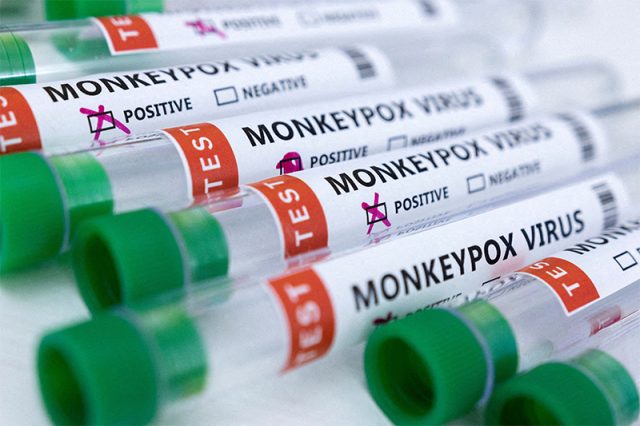[ad_1]

- Declaration is WHO’s highest stage of alert
- Tedros breaks impasse on advisory committee
- Determination welcomed as strategy to stem illness’s unfold
The quickly spreading monkeypox outbreak represents a worldwide well being emergency, the World Well being Group’s highest stage of alert, WHO Director-Basic Tedros Adhanom Ghebreyesus mentioned on Saturday.
The WHO label – a “public well being emergency of worldwide concern (PHEIC)” – is designed to set off a coordinated worldwide response and will unlock funding to collaborate on sharing vaccines and coverings.
Members of an knowledgeable committee that met on Thursday to debate the potential suggestion had been cut up on the choice, with 9 members in opposition to and 6 in favour of the declaration, prompting Tedros himself to interrupt the impasse, he advised reporters.
“Though I’m declaring a public well being emergency of international concern, for the second that is an outbreak that’s concentrated amongst males who’ve intercourse with males, particularly these with a number of sexual companions,” Tedros advised a media briefing in Geneva.
“Stigma and discrimination might be as harmful as any virus,” he added.
He mentioned the chance of monkeypox – which spreads through shut contact and tends to trigger flu-like signs and pus-filled pores and skin lesions – was average globally, besides within the Europe, the place the WHO has deemed the chance as excessive.
The White Home mentioned the declaration was a “name to motion for the world neighborhood to cease the unfold of this virus.” Raj Panjabi, director of the White Home pandemic preparedness workplace, mentioned a “coordinated, worldwide response is crucial” to cease the unfold of the illness and defend communities on the best threat of contracting it.
Beforehand, Tedros has usually endorsed knowledgeable committee suggestions, however two sources advised Reuters earlier on Saturday mentioned he had doubtless determined to again the best alert stage as a result of considerations about escalating case charges and a brief provide of vaccines and coverings.
Up to now this yr, there have been greater than 16,000 instances of monkeypox in additional than 75 international locations, and 5 deaths in Africa.
The viral illness has been spreading mainly in males who’ve intercourse with males within the current outbreak, outdoors Africa the place it’s endemic.
Well being specialists welcomed the WHO’s resolution to problem the PHEIC declaration, which till now had solely been utilized to the coronavirus pandemic and ongoing efforts to eradicate polio.
“The correct result’s clear – not declaring an emergency at this level could be a historic missed alternative,” mentioned Lawrence Gostin, a professor at Georgetown Legislation in Washington, D.C., calling the choice politically courageous.
The choice ought to assist comprise the unfold of the viral illness, mentioned Josie Golding, head of epidemics and epidemiology on the Wellcome Belief.
“We can not afford to maintain ready for illnesses to escalate earlier than we intervene,” she mentioned.
June assembly
The WHO and nationwide governments have been dealing with intense strain from scientists and public well being specialists to take extra motion on monkeypox.
Circumstances of the viral illness have ballooned because the committee first met on the finish of June, when there have been solely about 3,000 instances.
On the time, the knowledgeable group agreed to rethink their place on the emergency declaration if the outbreak escalated.
One of many key points driving a reassessment was whether or not instances would unfold to different teams, notably youngsters or others who’ve been weak to the virus in previous outbreaks in endemic international locations.
On Friday, the US recognized its first two monkeypox instances in youngsters.
WHO officers mentioned on Saturday they had been exploring the potential of the virus spreading through new modes of transmission.
—Reporting by Jennifer Rigby and Natalie Grover in London, John Revill in Zurich and Timothy Gardner in Washington; Enhancing by Helen Popper and Daniel Wallis
[ad_2]
Source link




